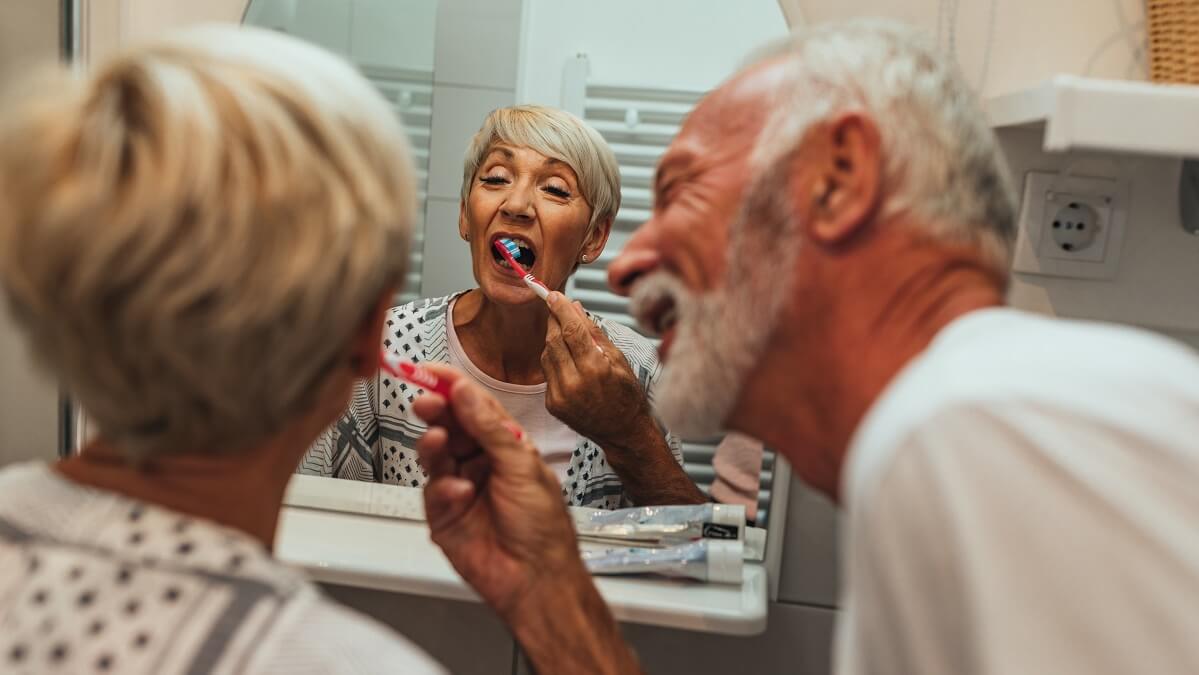Brushing your teeth is such a mundane, routine part of your daily life, it’s easy to think of other things as you go about the task. But neglecting your oral hygiene could have serious consequences, so it’s time to take a closer look at some common brushing mistakes.
Not brushing long enough
To gain the maximum benefit from brushing, the Australian Dental Association recommends brushing for at least two minutes morning and night, using a soft-bristled toothbrush with a small head and a flexible neck. You need to pay extra attention to the crevices around dental devices such as implants, braces or a bridge as food can get trapped.
Not brushing twice a day
Only brushing in the morning just won’t cut it. Bacteria and plaque build up throughout the day, so you need to brush at the end of the day too.
Food particles get stuck in the nooks and crannies in your teeth and often only a toothbrush and toothpaste can remove them. Just rinsing with water is definitely not enough.
Read: Dental expert tells what happens to our teeth as we age
Brushing straight after eating
For 20–30 minutes after eating, your mouth becomes slightly acidic and your tooth enamel weakens. If you brush right away, you could be wearing down your enamel faster than it needs to. Instead, wait at least 30 minutes, or if you’re in a hurry, rinse with water, or even use a mouthwash containing fluoride to neutralise the acids.
Not getting the angle right
For the most effective tooth cleaning, hold your toothbrush at a 45-degree angle to your gums, then use a small circular motion to gently brush the outer surfaces, inner surfaces, and the tops or chewing surfaces of the teeth. To reach those tough areas at the back of your mouth, try using your left hand to brush the right side of your mouth and your right hand to brush the left side.
Read: Why does your breath smell bad?
Skipping the floss
No matter how well you brush, the job is not complete until you’ve flossed. Flossing gets into those hard-to-reach areas to remove plaque.
Plaque is a sticky film full of bacteria, and these bacteria produce an acid that can eat away at your teeth and form tartar, which only a dentist can remove.
Not brushing your tongue
Your tongue is home to bacteria – if these bacteria remain in your mouth, they could cause bad breath, tooth decay and gum disease. After you’ve brushed your teeth, use your toothbrush to clean your tongue – start at the back and move forward. Take it easy though – the bumps on your tongue contain the papillae which help you sense taste and texture.
Pressing too hard
Regardless of whether you’re using a manual or an electric toothbrush, your cleaning power relies on repetition, not exertion. Applying too much pressure can wear down your enamel and cause tissue to recede from your gums. Just exert the same amount of pressure you’d use to ring a doorbell.
Read: Five myths and facts about keeping your teeth healthy
Using too much toothpaste
Adults only need a pea-sized amount of toothpaste – or half the length of a standard toothbrush. The fluoride in toothpaste is a mineral, and too much of it can change the shape and structure of your teeth.
Storing your toothbrush incorrectly
Once you’ve finished brushing, rinse your toothbrush and store it upright, allowing it to air dry. If you’re putting it back in a cupboard, make sure it’s not touching any other toothbrushes – moisture can create the perfect environment for bacteria to thrive.
Not replacing your toothbrush enough
It’s recommended that you replace your toothbrush every three to four months. After this time, the bristles fray and may not be able to clean your teeth as well as they used to.
Are there any other brushing mistakes you think we should add to the list? Let us know in the comments section below.

